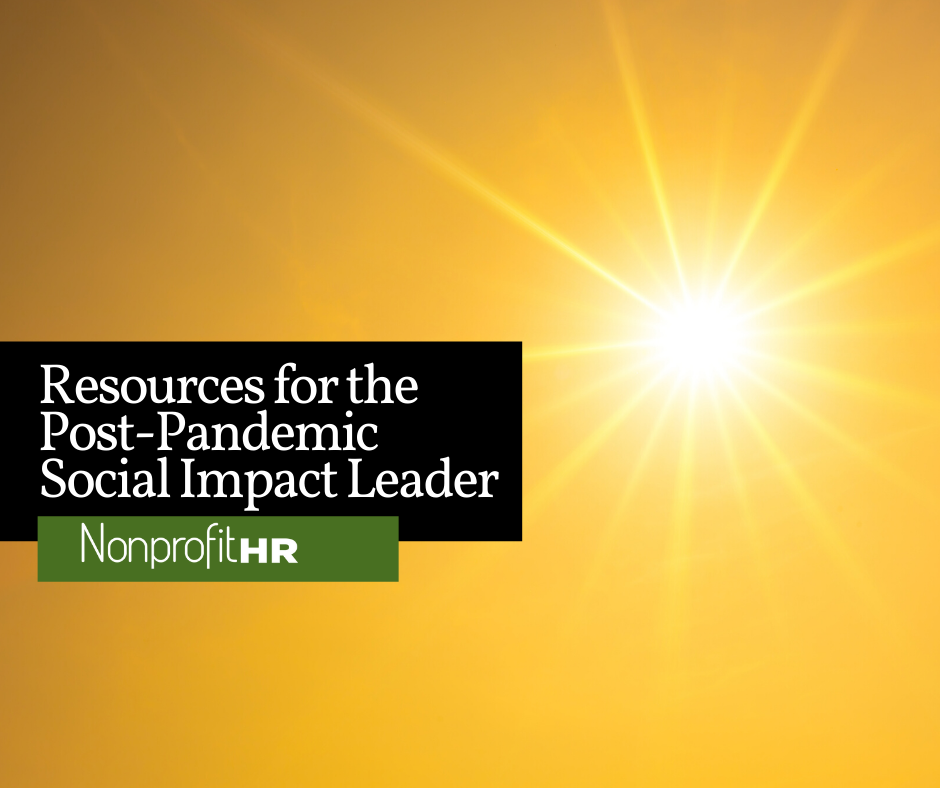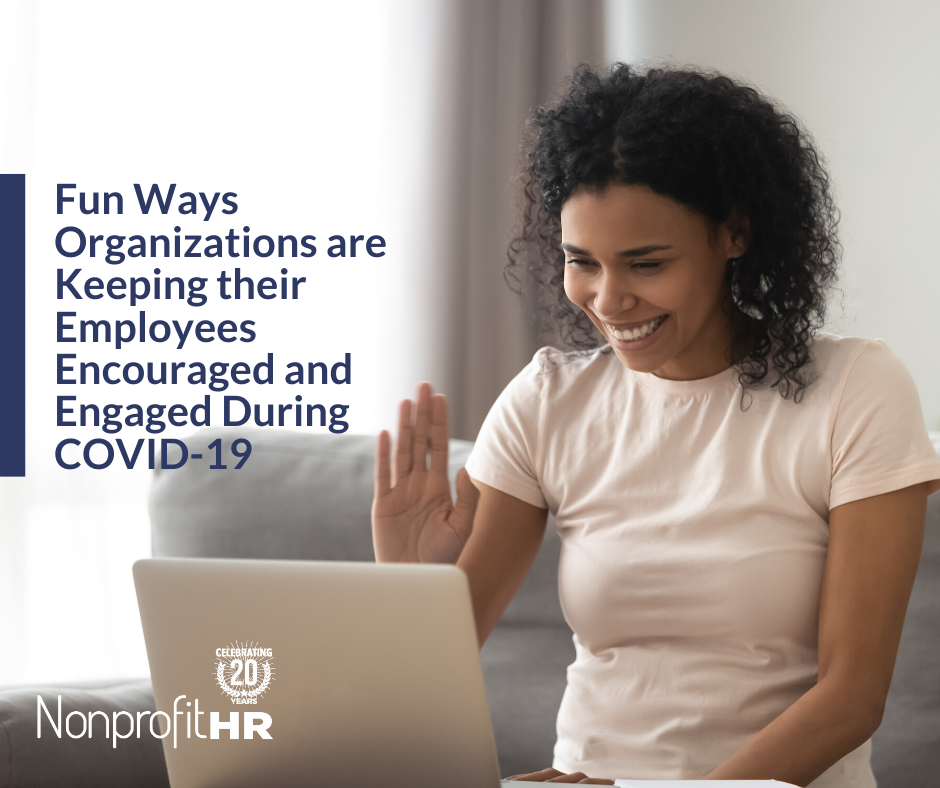WTOP: 5 ways nonprofits can…
Now that millennials are entering the C-suite, it is time to learn a little bit more about the emerging professionals that will eventually take their place. Pew Research Center defines Generation Z, or the Post-Millenials, as those born between 1997 and 2012. They are in many ways a natural successor to the previous generation, concerned with equality, connection, and the latest “big thing.” However, my fully-digital generation is looking to blaze trails of their own.
Gen Zers are coming of age with an innate aptitude for competition not only as a result of the pressures of social media but also watching the previous generations’ hard work and hardships, particularly financially (1). This competitiveness expresses itself through a high concern with professional and academic development, a concern which has further fostered a fear of failure. We strive to maintain high GPA’s while reaching for extra-curriculars, honors, awards or internships to stack on our resumes, all hoping to gain an advantage in the job market and achieve stable financial footing to compensate for our sizeable student debt. We are a generation of self-starters and go-getters eager for a seat at the table. Consequently, this fierce drive and intellectual curiosity are what we are also bringing to our professional careers. As we trickle into the labor force, we favor organizations that exhibit a strong commitment to diversity, flexibility, transparency, and values.
 Nike Intern, Dillon Alexander
Nike Intern, Dillon Alexander
“Gen Z is a generation that has developed a fire within for technological innovation, the responsibility to the planet, and social equality. A world without a focus on any of these three things seems as though it is no longer an option for a typical Gen Zer. We have recognized the need, through our constantly open channels of information, that we must act quickly if we are to quell major problems arising in our world today.”
– Dillon Alexander, a rising senior at the University of Arizona and current Global Strategic Initiatives Intern at Nike.
It is important to note that the qualities mentioned so far cannot encompass the inherent diversity and account for the variability of an entire generation. After all, Generation Z, which currently totals to over 27% of the U.S. population (4), will likely continue to change as we age. However, it can frame the narrative and allow employers a greater insight into being mindful of this inevitable transition.
What are Gen Zers looking for in a potential workplace?
- Technological stimulation
Another nickname for this generation is the iGeneration. We have an “always-on” mindset and a strong ability to absorb media from multiple platforms simultaneously. This immense consumption of information has led to the creation of entirely new career possibilities, those specific to HR include an HR Information Systems (HRIS) Analyst, HR Technology Consultant, or even a VP of HR Data, AI & Strategy.
Needless to say, we are content-driven. For Gen Zers, social media — Facebook, Twitter, Snapchat, Instagram, Youtube, Pinterest — is more than just a way to connect with peers, but an invitation to engage with a variety of content, from brands we like (and other people who like those products/services) to colleges and universities we are applying to (7). A survey found that 81% of Gen Z relies on social media to become informed of products before purchasing them. Employers should take advantage of social media to communicate their brand and utilize it as a channel to engage job candidates of this generation.
- Regular feedback and collaboration
Technology has fostered our accustomization to immediate feedback. A great example is when academic assignments are taken and/or submitted online. We are often able to see results instantly, rather than having to wait a certain period of time to receive our grade. This immediacy is what we expect pertaining to feedback in the workplace, regardless of whether it is virtual or not.
In fact, a global survey Forbes conducted with 3,000 members of Gen Z found that 75% prefer to receive feedback from their manager in person, rather than via technology.
Members of this generation desire social connection with their coworkers as well as with their bosses. This could change the current norms of employee/employer relationships by encouraging “skip-level” communication, as well as bolster a more collaborative workplace. Creating channels to support an open flow of ideas and feedback can help improve the retention of younger employees by making them feel more informed and more connected to the mission.
- Support for a healthy work-life balance
With increasing levels of anxiety and depression among youth, my generation is seeking healthy ways to manage stress and avoid burnout. As a consequence, we are having more honest discussions about emotional health in the workplace and changing the attitude around behavioral (i.e. mental and emotional) health support. A recent report (6) shows Gen Zers are more likely than their older counterparts to miss work because of mental health challenges, such as stress or anxiety. This corresponds with the fact that 70% also consider behavioral health benefits either “critically important” or “very important” when evaluating a new job. In short, this incoming workforce places more value on potential employers who provide these kinds of health benefits over those who do not. Benefits are just one of the many areas that job seekers look to in order to identify if the organization values what they value, which is a critical part of whether or not the candidate will accept or decline a job offer.
- Aligned with their values
The world is more closely connected than ever before and as a result, nearly nothing is private. We volunteer a mass amount of information about our lives online every day, which can range from our global political perspective to what we ate for lunch. We put ourselves out there to know and to be known. In this way, we are not afraid for our employer to see the things we feel strongly about because members of this generation look for an employer that has values that are aligned with their own. While financial stability is also a factor taken into consideration, Gen Zers simply aspire to do more meaningful work.
 Rise Strategy Group Intern, Lauren Chung
Rise Strategy Group Intern, Lauren Chung
“I look for an employer that has values similar to mine. I personally want to work for a company that has a good moral compass in that they’re doing work for good and for the same reasons as myself. I want to go to work and feel inspired by those around me – inspired that we’re working together to accomplish something good in the world. Or maybe, that I go to work and feel inspired by what those around me as accomplished. I want to feel fueled and fulfilled,”
– Lauren Chung, a rising senior at the University of Wisconsin-Madison and current Marketing & PR Intern at Rise Strategy Group.
How can organizations play to the strengths of this generation?
- Evolve your approach to technology
The Forbes survey found that 21% of Gen Zers would not tolerate outdated workplace technology. In order to engage this generation and take advantage of our tech-savviness, employers should work to integrate new technology to enhance established practices. For example, we tend to be fast and independent learners. Offering advanced online learning opportunities and training tools can augment employee, as well as organizational, development and growth. This type of engagement will better equip their workforce and the organization for long-term success.
It will also be beneficial for employers to utilize technology by creating a strategy to manage and measure the performance of this generation. Setting a structured system of periodic evaluation is important in retaining young talent due to our accustomization of structure through the prevalence of technology. In the same way, we are hard-wired to perform best when we have structured goals and challenges in the workplace. After all, we were taught that objectives that are specific, measurable, attainable, realistic, and timely (S.M.A.R.T. goals, anyone?) are the most effective way of achieving a mission.
- Encourage intergenerational collaboration
Despite Gen Z’s tech tendencies and “do-it-myself” attitude, we place a high value on face-to-face interaction and collaboration. As this new generation is entering the workforce, there may likely be a generational gap in methods of collaboration and communication. To stay ahead of the curve, employers should proactively incorporate actions to promote and practice effective intergenerational communication, such as through periodic knowledge-sharing meetings across various levels of the organization or a mentorship program, as not only a method to increase productivity and efficiency between levels but also as a strategy for talent retention.
“When I think about what I’m looking for in a workplace, I find it import
 Bosque del Apache National Wildlife Refuge Intern, Ava Johnson
Bosque del Apache National Wildlife Refuge Intern, Ava Johnson
ant to be surrounded by coworkers that are willing to help get various things done. If it is a collaborative environment where everyone is happy to switch hats (figuratively) and work towards a shared goal, then work is a more positive experience. An employer that will work with and support you in this type of environment will make me feel supported, and inspire me to work together to help others and be more productive than we could on our own.”
– Ava Johnson, a rising senior at Virginia Tech and current Biological Technician Intern
- Promote workplace culture
When attracting talent of this demographic, focus on selling your culture.
Members of Gen Z do not want to feel as though they have to put on a mask for their career, but rather that they can show up and be themselves. They are pursuing the best cultural fit where they are confident they can thrive and work best. This is why cultivating a healthy workplace culture, and then promoting that culture, is paramount in attraction and retention of this generation.
Today, with applications such as Glass Door, the condition of your organization’s culture is already on display. Use this exposure to your advantage in your recruitment process. Play up its strengths and its uniqueness. After all, culture is the root of your organization’s reputation and credibility with this generation.
- Leverage the Human Factor
If there is anything that I have learned from my experience at Nonprofit HR, it is that there is no substitute for people. No matter how many messages you are bombarded with telling you that the latest and greatest technology will solve all of your problems, there is something to be said about old-fashioned human brainpower. Even as the development of technological processes and solutions are rapidly advancing, humans possess the soft skills, tacit knowledge, and agility that this technology still lacks.
When employers bring the focus back to the human factor in the workplace and use that as a focal point for the organization’s culture, it proves return. It starts with leadership setting the example for its people. Why? Because people drive culture and will care about an organization that cares about them. This is the type of trust that inspires connection and will create long-term impact in an organization.
Simply put, Gen Z seeks to be part of a greater mission and to be seen as a meaningful asset to that mission — not just a number.
- Put your values on display
As discussed in our 2019 Talent Management Priorities Survey, one of the top three talent acquisition (recruitment) priorities is strengthening your/the employer brand to better attract talent. As a member of Gen Z searching for internships and eventually a full-time position, I look for an employer who clearly communicates their values throughout the entirety of the recruitment process. Strong values coupled with aligned action translate to a strong dedication to mission.
Thus, promoting your organization’s values, culture and dedication to people in the advancement of a mission will appeal to and attract the right kind of people for your organization, specifically young job-seekers with similar strength in values.
Why does culture matter to mission? See more about creating an intentional culture in our 2019 Nonprofit Talent Retention Practices Survey Results.
by Lindsey Otto
Marketing and Communication Intern
Lindsey is studying Communication at the University of Arizona
Nonprofit HR
Additional resources:
- https://www.forbes.com/sites/janicegassam/2018/12/26/how-the-newest-generation-generation-z-will-impact-your-workplace/#6b80edcc2af6
- https://www.forbes.com/sites/williamarruda/2018/11/13/how-to-make-your-workplace-ready-for-gen-z/#46a3c0134d30
- https://www.hok.com/thought-leadership/generation-z-and-the-workplace-accommodating-tomorrows-workforce/
- https://www.bloomberg.com/news/articles/2018-08-20/gen-z-to-outnumber-millennials-within-a-year-demographic-trends
- https://www.statista.com/statistics/797321/us-population-by-generation/
- https://cdn2.hubspot.net/hubfs/5327495/2019_Workforce_Report_04292019_v1-1.pdf?hsCtaTracking=172528a4-cde5-47d4-bcf7-aaac61ef88ec%7C0ef211f9-e2de-4cae-88a1-006db6054a36
- https://hbr.org/2015/05/how-to-market-to-the-igeneration
- https://www.inc.com/ryan-jenkins/the-2019-workplace-7-ways-generation-z-will-shape-it.html
- https://www.shrm.org/hr-today/news/hr-magazine/1118/pages/a-16-year-old-explains-10-things-you-need-to-know-about-generation-z.aspx






























